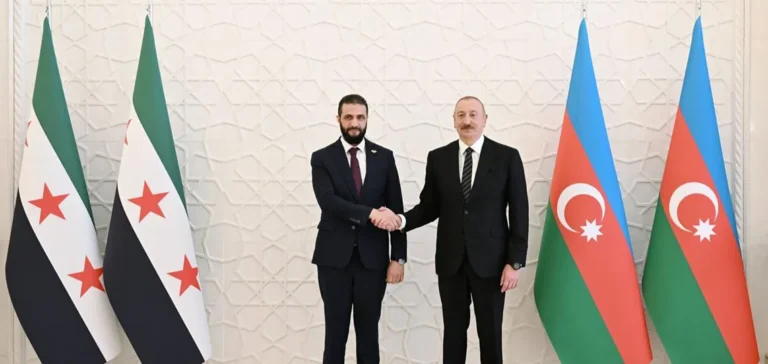Turkey has started exporting Azerbaijani natural gas to Syria through the Kilis border point in the country’s southeast. This transfer, launched after several months of preparation, meets the demand of Syria’s new authorities following the overthrow of the previous government. Since the conflict began, Syria has faced electricity outages lasting more than twenty hours per day, severely impacting its economic framework.
Expanded regional partnership
The project, supported by Qatar’s development fund and involving multiple regional actors, plans to export up to two billion cubic metres of natural gas per year. At the inauguration ceremony in Kilis, Turkey’s Minister of Energy, Alparslan Bayraktar, stated that this volume should supply a power plant with a capacity of approximately 1,200 megawatts. This facility aims to meet the electricity needs of nearly five million Syrian households, a critical factor for reviving industrial and domestic activities.
Gradual restoration of power supply
The natural gas will first be used to restart a major power plant, with distribution planned from Aleppo to Homs. This operation continues a Qatari programme launched earlier this year, which has already provided 400 megawatts of electricity per day via a route through Jordan. The intensification of this energy cooperation aims to accelerate Syria’s economic recovery by improving access to electricity.
Reconstruction challenges and regional outlook
The roles of Turkish, Azerbaijani, and Qatari partners are pivotal in supporting the reconstruction of Syria’s energy sector. The reactivation of electrical infrastructure in Aleppo and Homs fits within a regional stabilisation strategy as the country seeks to restart its industrial activity. According to Alparslan Bayraktar, supplying natural gas to these urban centres will enable the reactivation of several power plants, thereby improving the daily lives of millions of Syrians.
Syria’s ability to ensure a reliable electricity supply remains a central challenge for the gradual normalisation of its economy. The Turkish Minister of Energy emphasised that “the gas will enable the activation of a power plant with a capacity of about 1,200 megawatts, meeting the electricity needs of approximately five million households and making a significant contribution to normalising daily life in Syria.”






















